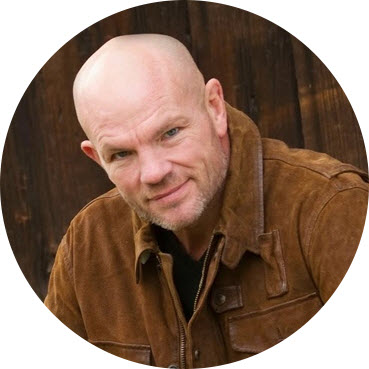
Thoughts from the Desk of Bob Repass…
Recently I read an article in the Wall Street Journal about “How to Work Remotely in an Exotic New City Each Month” Check it out:
Of course, I thought WOW! Now that’s an interesting concept. We all strive to create an entrepreneurial life where we can work from wherever we want and still run our business and enjoy our lives. All we need is internet!
Naturally, this got me to thinking. OK, if I was to do this, where would I spend each month?
January: What a way to start the year! Seven Mile Beach, Grand Cayman Islands – I can sum this place up in one word: PARADISE! Angie and I have spent a lot of summers there. Nothing more amazing than the food, sunsets and balconies!
February: Spending Valentine’s on The Island of Nevis – a relatively unknown slice of Caribbean heaven. Our family once spent a week there when our kids were still in school. Simply amazing! Great seafood and island golf.
March: No place like North Carolina for a little “March Madness.” – One of my favorite songs, from one of my favorite artists Kenny Chesney, is “Back Where I Come From”. Both Angie and I still have family there and spending a month working from the place where our roots are just seems appropriate. Oh and Go Wolfpack!
April: Maui, Hawaii – Simply a magical place. Beautiful sunrises and sunsets, luaus, the Road to Hana and Mama’s Fish House restaurant. That’s a month’s worth.
May: New York City – Probably my all-time favorite place. This place definitely fits the old saying “Great place to visit, wouldn’t want to live there!” But… for a month? For sure! So the tough part was deciding what month of the year to “work” in the Big Apple? The deciding factors on when to go: Not too hot and humid, and Yankees Baseball!
June: Where better to start summer than on the Cape in Chatham, Massachusetts – Have you ever been to Cape Cod? If so, Wow! If not, what? Trust me an experience you have to “experience.” When? Again baseball wins out, there is nothing like going to a Cape Cod League Baseball game on a summer night. Here’s to the Chatham Anglers!
July: Time to go across the pond and start in London, England – This is the one place on the list that we have never been. Why go there then? Glad you asked. Basically two reasons, one of my historical heroes has always been Sir Winston Churchill so I’d love to soak in all the British history, and secondly, wait for it… one of my favorite movies is the 1999 classic Notting Hill, starring Julia Roberts and Hugh Grant. Who can forget the famous line; “And don’t forget… I’m also just a girl, standing in front of a boy…” OK I agree that’s enough.
August: The European adventure continues in Rome, Italy – I have always been a huge fan of history which is one reason, New York, Washington and London are also on this list. But after recently visiting Rome, I was just overwhelmed. I like the idea of taking time each day to enjoy a Cappuccino, some pasta, and just exploring.
September: There’s worse places to spend my birthday than in Tuscany, Italy – Well we’ve been to Napa and that is amazing but once you’ve been to Tuscany… it’s just not the same. While we were there I told Angie, “Let’s get a villa and just stay here for a month or two” I’ve never felt so relaxed!
October: We’ll wrap up our stay in Italy in Positano – If you’ve never been to the Amalfi Coast, pictures don’t do it justice. All I can say is the postcards are only the tip of the iceberg. And a month is not enough time!
November: Fall is a great time to be in Washington DC – Our Nation’s Capital. As most of you know I am passionate about working for regulatory relief for our industry, spending a month on “the Hill” would surely be impactful. Oh, and did I mention my daughter Kristin lives in DC? So, spending a month with her would just add icing to the cake.
December: Home for the Holidays! – Not to sound super corny but to quote Dorothy in the cinematic masterpiece The Wizard of Oz, “There’s no place like home!” Even working remotely calls for being in a place where you are centered and grounded. There’s no place I feel quite like that than at home with my dogs Brady & Dexter at my feet.
In the spirit of full transparency, Angie proof reads each edition of The Buyline so now she will be asking me “We really are going to do this? Right?”
Hmmm – 2019 could be an interesting year!
Bob Repass
Managing Director
Stay up to Speed with Eddie
CONFIDENCE IS GREAT (AS LONG AS IT’S NOT TOO MUCH OR TOO LITTLE)
by Eddie Speed
PART TWO:
In the first section, I talked about hallmarks of the under-confident, now I want to talk about the other extreme, and then finish with what it looks like to have just the right amount of confidence.
HALLMARKS OF THE OVER-CONFIDENT
Over-confident folks always imagine themselves succeeding, which is a good thing. But they tend to assume success will be automatic, which it ain’t.
Over confidence is as dangerous as inexperience! Their opinion of how much they know is way higher than how much they actually know. This can get them and their investors in a big mess. As the famous proverb says, “Pride goes before a fall.”
I encourage people to be confident, but the downside of confidence is that you think you’ve learned all you need to know. I did a class a few weeks ago and an engineer came up to me after just one day of note training and said, “I pretty much got the math.” I thought to myself, “If you can understand all this math after just one day, why weren’t you doing it yesterday before you came to class?” He had confidence but it turned into complacency. He had a roll of quarters and thought he owned the vault! I’ve been in notes close to 40 years and I’m the first to admit I don’t know everything. He watches one day of creative math and thinks he has all the tricks he needs. I’m not saying he’s not smart, but to think that one day of training is all he needs to succeed is pretty dumb. If he’s smart enough to learn all there is to know in one day, why come at all? You have to have an unquenchable thirst for knowledge in this business.
Be confident but not cocky. Your confidence will reassure your potential investors that you know what you’re doing, but your arrogance will turn them off and increase your possibility of making a huge mistake that loses your money and theirs.
When over-confident types make one successful deal, they think they’re the world’s foremost authority on investing. If they happen to make several successful deals, they’ll need to have all their doors widened so they can fit their swollen head through.
Over-confident people aren’t curious and they don’t ask questions. If a person already thinks they’re the smartest person in the room, then they don’t think they can learn anything from anybody. Their hand only goes up if they want to give a lecture, not ask a question. Sometimes I wonder if they sign up for classes because they need a forum to show everybody how smart they are. They’re not driven to keep learning, so they plateau pretty early in their career.
They feel they don’t have to try very hard. When I was involved in sports there were always guys who were naturally gifted. They were good without even trying, so they didn’t try. But the guys who weren’t quite as gifted worked a whole lot harder, and over time they surpassed the guys with more natural talent who didn’t work very hard.
Another way over-confidence holds you back is because nobody wants to help a cocky person. If you help them and they have some success, it’ll only make them more arrogant. Then they don’t acknowledge how much you helped them. No matter how much guidance and direction you give them, in their mind they did it all themselves.
Rarely do I see a cocky investor read the market trend as timely as they should have. They think they know more than the market, so they ignore warning signs they should be watching. They’re confident in what they think they know, but they’re not aware of what they don’t know.
As a leader and a teacher, I try to understand the traits of the over-confident, but I don’t hate them. I’ve seen way too many of them get humbled and lose the chip on their shoulder. They can sure be irritating, but hopefully later in life they’ll come back down to earth.
HALLMARKS OF THE JUST-RIGHT-CONFIDENT
If Mighty Casey could strike out, so can you. Even if you’re a rock star, never over-estimate your skills.
The right level of confidence comes with experience and training. Having confidence doesn’t mean you know every possible answer, but you know you can find the answer when you need it. Sure, you’ll mess up at times, but remember that every failure or setback is a teachable moment, and you’ll keep learning and climbing. Never let a setback make you lose your forward momentum.
When do you reach the point where you know enough? I have no idea – I haven’t reached it yet.
You dang right I’m still learning!
I read, and I listen to people who know things I don’t. I go to conferences and masterminds where I take notes. I make it a point to be around knowledgeable people as much as possible, and I don’t do all the talking. I study, but I’ve also learned that some things you can only learn by doing, not studying.
On my grave it’ll say, “Eddie never waited for the perfect path to begin. And he made the note business a journey.”
As for my students, I try to be careful and not write somebody off because their confidence level is out of whack. Many rock star NoteSchool students started out one way but kept progressing and made the transition from extreme over-confidence or under-confidence to find balance. If I had given up I wouldn’t know the person I know now.
It’s humbling to see a grown guy with a tear running down his cheek thank you for changing his life. But the truth is, I didn’t change his life; I was just able to show him a path and let him change his own life.
Capital Markets Update
Small Business Owners are Getting a New Incentive to Sell to Their Employee
By: Ryan Parson
The federal government just made it a lot easier to form an employee-owned business.
President Donald Trump on Aug. 13 signed a bill into law that included a popular provision that allows the Small Business Administration to straightforwardly loan money to employee-owned businesses that wish to buy out retiring small business owners.
This and other changes in the provisions are significant. Not only could they double or even triple the growth rate of employee-owned companies over the next decade, it could help stabilize jobs in local communities as well as reduce inequality by giving more middle-class families a means of accumulating wealth.
Furthermore, this measure will be welcomed by the hundreds of thousands of small businesses owned by retiring baby boomers that are at risk of closing up, putting millions of jobs on the line as well.
‘Silver Tsunami’
The impetus behind the latest piece of legislation is a result of what some have dubbed the “silver tsunami.”
As baby boomers retire, more than 2.3 million closely held businesses that they own are at risk of closing down because of an inability to find someone to take over. These companies employ about 25 million people, spend about US$1 trillion on payroll a year and make about $5 trillion in sales.
While some of these businesses will be passed down to members of the family or others, about 6 out of 10 are expected to wind up on the auction block in the next decade because the owners need to sell out in order to retire.
This will represent one of the largest transfers of wealth in American history.
Workers to the rescue
Surveys show that only a small fraction of retiring owners have a daughter or son who wants to take over the company and is competent to do so, and only a fifth of businesses listed for sale ever sell.
That makes selling their businesses to the workers who helped create a lot of the value in the first place one of the best options available. It not only helps secure the owner’s retirement but also leaves behind a legacy in the local community. It has also slowly become more popular in recent decades.
Small businesses are sold to their managers or workers using one of three methods: an employee stock ownership plan or ESOP, a worker cooperative or an employee trust.
The ESOP is currently the most common way to do this because it gives regular workers a way to buy companies and has meaningful federal tax incentives. This allows the new owners to set up a trust, which secures a loan that the company itself will pay back over several years.
A key feature is that the company, not the workers, steps forward to provide the collateral for the loan, and as the loan is paid down, new shares are distributed to employees and managers. The workers do not purchase the shares with their savings.
Worker cooperatives, on the other hand, have traditionally been employee-owned from the beginning, with investments from staff and equal voting rights in many company decisions. Increasingly, the worker coop model is being used to purchase companies from retiring business owners.
Employee trusts are a new form of ownership, similar to ESOPs in some ways. Their goal is to ensure a company remains employee-owned in perpetuity by keeping the shares within the trust itself. The employees are beneficiaries of the trust, receiving payouts based on profits. Evidence shows that employee ownership tends to make companies more productive and stable.
As for their prevalence, based on 2014 U.S. Department of Labor data on ESOPs, about 2 million workers and managers were invested in about 5,800 closely held companies with the total employee ownership valued at $255 billion. While the average ESOP worker in these companies has an ownership stake of $134,000, calculations show this is close to a quarter of a million dollars for workers who stay with the company for 20 years.
Unfortunately, many business owners aren’t aware this is even an option.
Raising awareness and guaranteeing loans
And that’s where the new law comes in.
The provision, previously known as the Main Street Employee Ownership Act, had co-sponsors on both sides of the political aisle. It is the most far-reaching employee share ownership legislation to pass Congress in over 20 years.
Its most important element involves permitting the SBA to clear away many previous barriers so it can make guaranteed loans of up to $5 million to employee-owned businesses, especially ESOPS and worker cooperatives. This will make employee buyouts easier to do by significantly expanding the amount of credit available and will create more flexibility for sellers so that they can transition out of their businesses over a few years.
The law also tasks the SBA with providing more awareness, technical assistance and training both to the small business owners who might be interested in selling to their employees and to the workers themselves.
Past efforts to encourage employee ownership by the federal government led to large growth spurts, such as laws passed 20 and 30 years ago that offered tax incentives. The latest measure could double or even triple the growth of employee-owned companies.
Measuring the wider impact
The legislation’s impact could be far-reaching.
If it’s successful in leading more small business owners to sell to employees, it could help reduce economic inequality. That’s because the primary beneficiaries would be working- and middle-class employees who would suddenly have a new way to build a substantial amount of capital.
Furthermore, it’ll help preserve local jobs and the tax base because these small businesses often end up closing down because there’s no one to take over. In addition, employee-owned companies have shown greater resiliency in times of economic stress, leading to fewer layoffs. And research shows that these types of companies offer better pay and benefits than other types of businesses.
Ryan Parson
In The Spotlight
Pat Precourt: Keynote Speaker at NoteExpo 2018
The note industry’s event of the year NoteExpo is entering its 5th year and will be held November 2nd & 3rd in Dallas. This year’s keynote speaker will be Pat Precourt. Pat is a multi-talented entrepreneur — an industry leader in personal development coaching, marketing, business development, speaking and influencing and a master of sales and leadership.
His most innate skill set is to pull the best out of you — to strip down the shell, drive right to the core and uncover what it is that truly drives you. Something that may have been buried so long you hardly recognize it.
Pat is known across the industry as the quiet guru — the guy who speaks with his actions and documented results, not with long web copy, fancy marketing tricks and copycat tactics. He tells it the way it is — an unedited opinion of a self-made entrepreneur and insanely successful business owner.
Pat’s goal in his own words is “to help you discover, design and implement a path to true wealth and abundance by identifying your passions, exposing and conquering your fears, clearing the wealth blockers in life that prevent you from achieving your true potential and igniting that burning fire inside to become the leader and entrepreneurial powerhouse you were designed to be.”
This is another reason that NoteExpo 2018 is the can’t miss event of the year – Register Now!
To keep up with the latest news on what will be happening at NoteExpo 2018, be sure to follow NoteExpo on Facebook, Twitter and Instagram!
Quote of the Month
“Stay in the ‘student mode’ the best leaders I know see learning as a daily practice.” – Simon Sinek
This Month’s Poll Question
Connect With Us
Are you on Twitter? If so, be sure to follow us on Twitter @NoteSchool and @ColCapMgmt, if not, why not?



